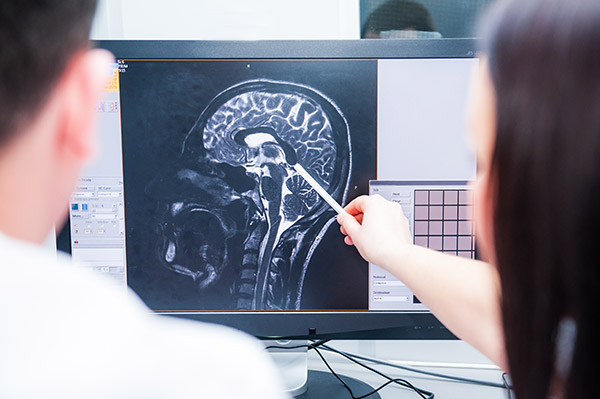San Francisco Brain Injury Attorney

Your body knows how to get your attention. When you skip a meal, your rumbling stomach will let you know that you need to eat. If you are running too fast, your pounding heart will give you the signal that you need to slow it down. If you overdo your workout, your stretched muscles will be sure to let you know about it the next day.
But what about your brain? Have you ever stopped to think about what the human brain does or how it works?
Although we have learned a lot about the brain, the brain still largely remains a mystery. What we do know is that it is an incredible organ made up of billions of nerve cells, called neurons, that connect to the rest of our body to send messages. The brain essentially controls all functions of our body, such as:
- mental capacity
- creativity
- emotion
- thoughts
- movement
- speech
- creativity
- sight
- smell
Brain function is something that many of us take for granted, but it is essential for normal, everyday function. A serious head or traumatic brain injury can be life-altering, causing permanent damage.
Common causes of brain injury and statistics
Traumatic brain injury, also called TBI, is the result of a violent blow or jolt to the head, resulting in damage to the brain. Traumatic brain injuries are actually more common than you may think, and the statistics are in to prove it. According to the Centers for Disease Control and Prevention, traumatic brain injuries account for 30% of all injury-related deaths in the United States. What’s more is that an average of 153 people die each day from traumatic brain injuries; not to mention, millions of Americans end up in the emergency room each year due to TBIs.
Those who are fortunate enough to survive a brain-related injury often live their lives with complications, such as:
- impaired thinking
- loss of memory
- loss of movement
- loss of vision or hearing
- changes in personality
- bouts of depression
Not only can these issues affect you physically, mentally, and emotionally, but they can also be a heavy burden on your loved ones.
Causes of brain injuries
There are many causes of brain injuries. Falls are the leading cause of traumatic brain injuries, accounting for 47% of traumatic brain injuries. Being struck by or against an object or person is the second leading cause of traumatic brain injuries, resulting in 15% of brain injury victims. Motor vehicles and traffic accidents comprise 14% of traumatic brain injuries. Assaults make up 9% of traumatic brain injuries. The remaining causes are unknown injuries and “other” injuries which do not fall into a specific category.
Symptoms of brain injury
Brain injuries are not easily diagnosed and are often overlooked. Traumatic brain injuries can cause a wide variety of devastating symptoms.
The following are common physical symptoms associated with traumatic brain injuries:
- Loss of consciousness for a period of time
- State of confusion or disorientation
- Constant headache that grows increasingly worse
- Vomiting and nausea
- Drowsiness and fatigue
- Difficulty sleeping
- Sleeping more than usual
- Difficulty being roused from sleep
- Dizziness
- Unsteadiness
- Loss of coordination
- Dilation of the pupils
- Convulsions or seizures
- Numbness or tingling in the fingers and toes
- Drainage of clear fluids from the nose and/or ears
Those who experience traumatic brain injuries may experience symptoms related to sensory processing. The following are common sensory -related symptoms:
- Sensitivity to light or sound
- Ringing in the ears
- Blurred vision
- Changes in the ability to smell
- Iron taste in the mouth
Traumatic brain injuries can also lead to cognitive or mental symptoms, including:
- Short or Long-term memory loss
- Difficulty concentrating
- Abrupt changes in mood
- Depression
- Anxiety
- Severe confusion
- Unusual, strange or violent behavior
- Slurred speech
- Coma
Determining the severity of the brain injury
There are three types of traumatic brain injuries: mild, moderate and severe.
When a person receives a brain injury that results in more than 30 minutes of unconsciousness, but less than 24 hours, they will be diagnosed with a moderate traumatic brain injury. When loss of consciousness lasts more than 24 hours, a person will be diagnosed with a severe traumatic brain injury.
CT scans, MRI’s, and X-rays can prove to be helpful in getting an inside look at the severity of a head or brain injury. It is important to recognize a brain injury as soon as possible, as a delay could lead to more complications or even death if left unattended. If a brain injury is suspected, then a full neurological exam should be performed on a regular basis. Seeking immediate medical attention to examine a potential TBI is extremely important, especially if you decide to pursue compensation for your injuries.
Why Hire A Brain Injury Attorney?
If you have suffered from a traumatic brain injury, you should consult with an experienced brain injury lawyer who can inform you of your rights. If you were injured due to another person’s negligence, then you may be able to bring a lawsuit against them.
Brain injuries usually result in extensive damages. This means that you may be able to receive a large sum of money for medical bills, pain and suffering, etc. Judges, jurors, and insurance adjusters recognize how debilitating a brain injury can be and will award you accordingly. A lawsuit is one of the best ways that you can ensure that you receive the best medical attention.
Many who receive a traumatic brain injury are unable to work or provide for their family. The compensation you receive can also help you pay for your living expenses.
Personal injury law is complex and not easy to navigate, especially if you have challenges as the result of a brain injury. An experienced brain injury lawyer can help walk you through the process and get you the justice you deserve.
If you live in San Francisco and have been the victim of a brain injury attorney, then contact the experienced personal injury attorneys at the San Francisco offices of Rizio Lipinsky Heiting today!
- This article should only be used for informational purposes. It does not constitute legal advice, and it does not create an attorney-client relationship with anyone. If you need legal advice, please consult an attorney in your community.
A Review of Rizio Lipinsky Heiting
Personal Injury Lawyers

 5/5
5/5



















